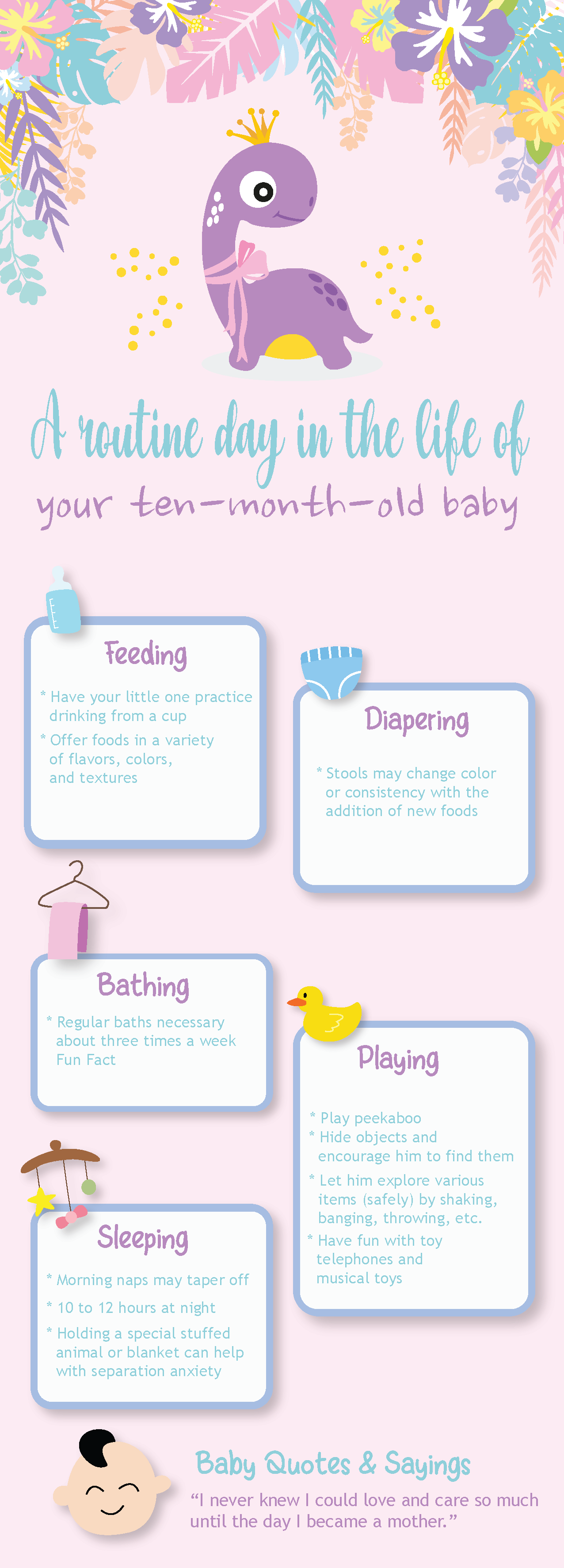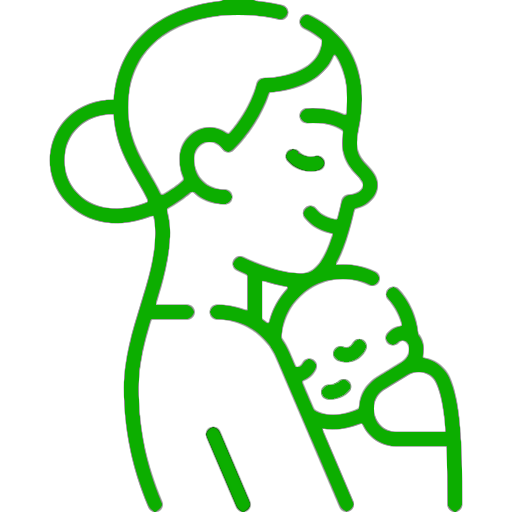How Much Sleep Does a Baby Need at Ten Months?
Ten-month-old newborns normally sleep 10 to 12 hours each night and take two naps per day. Some babies gradually lose the need for a morning nap.

Around this time, your baby may develop separation anxiety, in which he becomes distressed when he is separated from you or cannot see you. This can generate issues at night when your infant wakes up and discovers you’re not there. Here are some dos and don’ts to keep in mind if your kid gets up throughout the night:
- Check to see that he is comfortable and not unwell.
- Gently pat him on the back and quietly tell him it’s all right — you’re close if he If a diaper change is required, do it swiftly and quietly, and then return him to his cot.
- Turn off the light, rock him, feed him, walk him, or put him to bed. These behaviours will only serve to reward him for waking up and extend this stage.
If daylight savings time is approaching, this might potentially cause sleep disruption.
Dental Care for Your Baby
You may have already noticed your baby’s first teeth poking through — or you may not, as teething occurs at different rates. Most children have all of their primary teeth by the age of three. It is critical to care for your baby’s teeth and gums every day, regardless of how many teeth she has today. Here’s how it’s done:
- Clean your baby’s teeth twice a day with a soft baby toothbrush and a small bit of baby toothpaste. If there are no teeth yet, gently wipe the gums with a soft towel or soft toothbrush. Learn more about baby dental care, such as which toothpaste to use and how long to brush.
- Never put your infant to bed with a bottle. This causes milk to accumulate in her mouth, resulting in tooth rot.
- If your baby shows signs of teething discomfort, such as irritability, crying, or irritated or swollen gums, try massaging her gums with your finger or giving her a rubber teething ring to gnaw on.
- Unfortunately, your baby may sustain a tooth injury at some point.
Here are two more health problems to be aware of:
- Food sensitivities Cow’s milk (which should not be introduced before 12 months), eggs, peanuts, soy, and wheat can all cause allergic responses in young children. Food allergies can cause minor to severe symptoms such as a rash, diarrhoea, breathing difficulty, or pale skin. Your baby’s doctor will diagnose any allergies and may propose a treatment plan. You may need to ensure that your infant does not consume foods to which she is allergic. Some children grow out of their allergies.
- Roseola. If your baby gets a temperature between 102 and 105 degrees Fahrenheit and then develops a rash on her trunk after the fever has gone away, she may have roseola, a viral infection. A runny nose, sore throat, enlarged lymph nodes, cough, and irritability are further symptoms. For treatment recommendations, contact your baby’s doctor. Roseola is communicable during the fever period, so keep your child away from other children while they are sick.
A Day in the Life of Your Baby
Every baby is different, but here’s a glimpse of what a typical day could look like with your baby.

COMMONLY ASKED QUESTIONS
How can I get my kid to sleep all night?
You could progressively eliminate the second-afternoon nap to ensure that your kid is exhausted enough at night. Make sure her diaper is changed before putting her in her crib at night to ensure she is comfortable. If she wakes up in the middle of the night, keeps the lights dimmed, says something calming, and discreetly exits the room.
She will eventually learn to comfort herself and return to sleep. A favourite object, such as a teddy bear or tiny blanket, may aid in her self-soothing. You may need to leave your baby to scream herself to sleep at times. Your baby knows you love her, and in these circumstances, you’re teaching her how to comfort herself.
What should I feed my ten-month-old?
Breast milk or formula, as well as solids, are commonly consumed by ten-month-old newborns. Provide little pieces of poultry, soft fruit, or vegetables, as well as whole-grain cereals, pasta, or bread, scrambled eggs, or yoghurt.
Can a 10-month-old eat cheese?
Yes. Cut hard cheese into little cubes or serve a small amount of cottage cheese.
Can a 10-month-old eat eggs?
Yes. Ten-month-old babies can eat scrambled eggs.
Tips for Sharing Parental Duties in Your Life as a Parent
It can be difficult to discuss parenting with your partner. The important thing to remember is that there is no such thing as a “perfect” family or one way to parent and that roles and duties may need to shift along the way. The question of how to divide parenting responsibilities and domestic chores will be an ongoing one. However, it is best to be open and honest in order to minimize annoyance and resentment. Consider the following:
- Divide the responsibilities. Make a list of common daily, weekly, and monthly household responsibilities and figure out how to divide them evenly. Perhaps one parent can give more throughout the week, while the other handles things on weekends.
- Take turns caring for the infant. You may or may not be working, but you will both want to be involved and invested in parenting your child. Can you tell me who gets up at night to comfort your baby if she cries? Can one of you do morning feeding and the other evening feeds? Can you divide who gets sick days and who does the childcare runs if your infant is unwell?
- Maintain your adaptability. Things change, and your family’s requirements alter. Meet with your partner on a frequent basis to discuss what is and isn’t working.
- Spend a quality time as a family. Set aside regular times when you may all be together as a family in a more relaxed setting. It might be as simple as playing on the floor together, eating family meals, or going for weekend hikes.
- Seek assistance in resolving conflicts. Conflicts are an inevitable part of any relationship and family dynamic, but your child is sensitive to the emotions of those who care for her. If you need assistance resolving problems, inquire with your healthcare practitioner about relationship counsellors or other professionals you could consult.
This page is based on professional advice from reputable medical and government organizations, such as the American Academy of Pediatrics and the American College of Obstetricians and Gynecologists. This page’s material should not be used in place of professional medical advice. For a complete diagnosis and treatment, always seek the advice of a medical expert.












Leave a Reply
View Comments